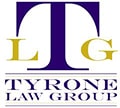Most elderly persons agree that estate planning is critical. However, over half of Americans aged 55 and up do not have a will, and even fewer have specific powers of attorney, a living will, or health care directives.
These legal documents assist your representatives in providing the end-of-life wishes you seek. Estate planning also alleviates the load on your loved ones and decreases the likelihood of family strife following your death.
Every senior should have an estate plan, regardless of how much they own. Some people think they should only get a plan if they are rich, but this isn’t the case.
You should get an estate planning attorney and proceed with drafting the plan regardless of the amount of assets you have.
Your estate includes your home, real properties, vehicles, businesses, bank accounts, life insurance, personal belongings, and any debts you may have. The objectives of your estate plan include:
- Establishing who will inherit your assets after your death
- Establishing a durable power of attorney.
- Choosing a trustworthy agent to make health care choices on your behalf if you become unable to handle your affairs due to illness or accident.
- Creating a Will and Trust
- Reducing estate taxes
- Appointing your estate’s executor or representative
- Providing peace of mind for you and your loved ones
You need to create a will
A testamentary will is a legal document that transfers your estate to the individuals or charities you name after your death. Your will also allow you to name an executor or personal representative.
This person will ensure that your preferences are carried out. Many older adults select their most responsible adult child for this position.
Inform the person you’ve chosen to manage their expectations, as well as your family, about what to expect in your will. This allows you to answer any queries they may have and avoid family confrontations after you leave.
When you are putting together your will, you need: your executor, beneficiaries, critical assets, and debts (e.g. mortgages, car loans, credit cards).
Be warned that if you have considerable assets in probate court, the process might cost up to 10% of your estate’s value. This can stress your executor’s position and extend the time your family members take to get their inheritance.
You may want to create a trust; this can be done by consulting with an estate planning expert. Building trust can save taxes, limit wealth distribution, and avoid probate.
These trusts are often either revocable or irrevocable living trusts, special needs trusts, or spendthrift trusts. Your attorney can help you choose the trust that best suits your interests.
Drafting your living will
A living will define your end-of-life treatment options and will be used while you are still alive but unable to express health care preferences.
Similarly, a healthcare power of attorney’s decision-making will only become effective if you cannot communicate your intentions.
The person you name as your durable health care power of attorney is usually a caregiver or family member you trust.
When you are creating a living will, consider:
- Medications you are willing or hesitant to have given to you
- Permission to use a feeding tube if you are unable to eat.
- Permission to use life support and its duration, as well as a willingness to accept palliative treatment toward the end of life.
- Having a do-not-resuscitate order (DNR)
- Your decision to be an organ donor
If you have both documents, the living will precede the healthcare proxy.
Many older persons prefer not to have a living will. Instead, individuals choose to have their healthcare proxy make medical decisions on their behalf if they cannot communicate their desires for treatment and life-saving procedures.
Whatever you decide, you must notify your loved ones about your healthcare preferences.
Think about the power of attorney.
A financial power of attorney, like a health care power of attorney, takes effect when you cannot make financial choices.
The person you nominate will handle your finances on your behalf.
To save unnecessary burden, consider selecting someone other than your health care power of attorney. However, it is legally permissible to name the same individual.
Your financial power of attorney should be highly trustworthy and financially sound. When choosing someone in your life to serve this function, you may want to consider someone who not only lives nearby but is also eager and capable of helping.
The person must be financially responsible, trustworthy, and willing to act in your best interests. Finally, this person should be proactive and helpful in safeguarding your finances.
While these forms outline the fundamentals of an estate plan, your circumstance may necessitate significantly more detail and nuanced skill than a law attorney can provide if they do not also practice estate planning. Begin with a checklist, which includes:
- List of your assets and obligations.
- Gather relevant supporting documentation.
- Select candidates for the executor (personal representative) and power of attorney.
- Draft an outline of the estate planning documents described above.
- Talk to your family about your aims and wishes.
Work with an estate planning attorney.
When you’ve completed these activities, a skilled estate planning or elder law attorney can examine your efforts and implement your strategy.
You will save time and money by being organized and having a basic understanding of the estate planning process before consulting with an attorney.
This calls for you to dedicate some time to research and gather as much information as possible about estate planning.
When you’ve completed all your estate planning documents, you’ll have peace of mind knowing you have a solid plan to protect yourself and your loved ones.
When finding an estate planning lawyer Largo, don’t hire the first one you come across. Instead, take time to research and find a reputable professional experienced in handling estate planning matters.
The last thing you want is to hire a contractor who causes more harm than good.
